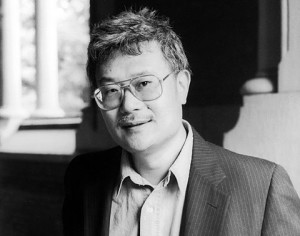By YONGXI WU APRIL 3, 2015 10:34 AM April 3, 2015 10:34 am
 Credit Pantheon Books/Associated Press
Credit Pantheon Books/Associated Press
Ha Jin‘s latest novel, “A Map of Betrayal,” tells the story of Shang Weimin, a Chinese mole within the C.I.A. He adopts the name Gary, becomes a United States citizen and, unable to return to his wife in China, starts a family with an American woman. When his identity is finally uncovered, China does nothing to save him. Gary takes his own life in his prison cell.
Issues of exile and identity figure strongly in Ha Jin’s own experiences. After joining the army at the age of 14, he studied English at Heilongjiang University and then earned a master’s degree in Anglo-American literature from Shandong University. In 1985, he entered a Ph.D. program at Brandeis University and chose to remain in the United States after the military suppression of the Tiananmen protests on June 3-4, 1989. Ha Jin (the pen name of Jin Xuefei) has been unable to return to China to visit his family, and although he has published more than a dozen books, most have been banned there.
Most of his early works are set during the Mao era in China’s northeast, where he grew up. These include his 1999 novel “Waiting,” which won the National Book Award and PEN/Faulkner Award, about an army doctor who must wait 18 years to end his loveless marriage. But since his 2007 novel “A Free Life,” much of his writing has focused on the lives of Chinese immigrants in the United States. Over the past two decades, he has published seven novels, including the Pulitzer Prize finalist “War Trash” (2004), six collections of short stories and several poetry collections, and he is currently a literature professor at Boston University. In an interview, he discussed his new novel, patriotism, exile and the challenges of writing in two languages:
Q.
On one level, “A Map of Betrayal” is the story of a spy. But it’s also the story of an immigrant — a kind of involuntary immigrant. A theme in much of your writing is the divided identity felt by many immigrants. In Gary’s case, this division is extreme. He is intensely patriotic, but he can’t return to his home country, and he feels betrayed by his country. How does this resonate with your own experience?
A.
I am also an involuntary immigrant. That’s why I am sometimes identified as an exile. In fact, I am both an immigrant and an exile. But I very much cherish my immigrant experience, which has given me another start, a new life.
To date, I haven’t been able to return to China, even for a visit. Two years ago, when my mother was hospitalized, I applied for a visa so I could go back to see her. My application was rejected by the Chinese Consulate in New York three times in a row. I didn’t see my mother when she passed away. So I could feel the longing and pain that Gary Shang, the protagonist of the novel, experienced.
Q.
Your early novels were set in China, but more recently you have turned to exploring American experiences. How has this affected your writing?
A.
When a story is set in China, there is little room for the characters to speak English, which gives me more room to experiment with the language, which is in essence artificial. In other words, it gives me more linguistic freedom, though I’d have to try to make the language feel natural and must not abuse this freedom.
When a story is set in the States, there’s an English environment, so I have take the actual idiom into account when I write.
For detail please visit here
